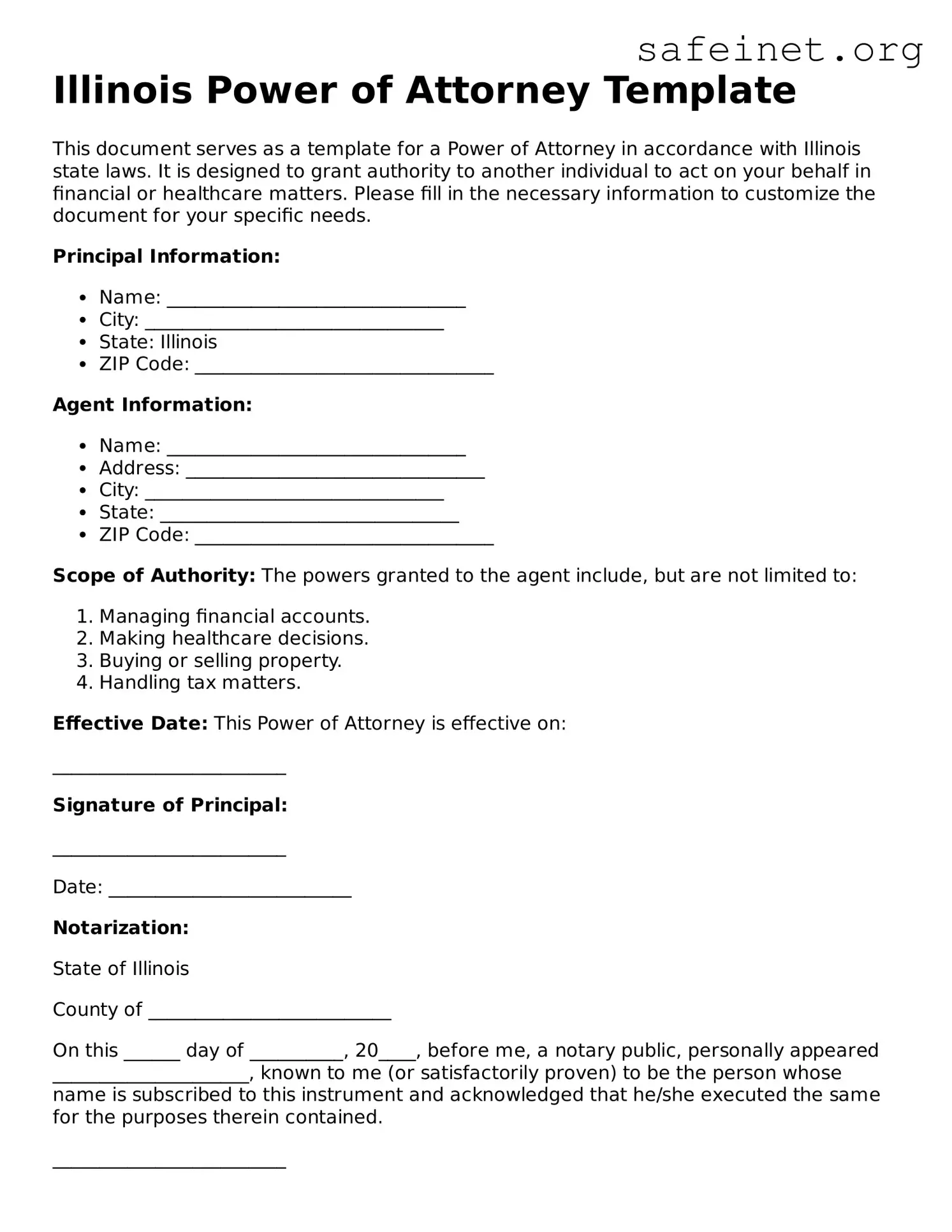What is a Power of Attorney in Illinois?
A Power of Attorney (POA) in Illinois is a legal document that allows one person (the principal) to grant another person (the agent) authority to act on their behalf. This authority can include making financial, medical, or legal decisions, depending on the type of POA established. It's a valuable tool to ensure that your wishes are honored, especially if you become unable to make decisions for yourself.
What types of Power of Attorney are available in Illinois?
Illinois recognizes several types of Power of Attorney forms. The most common include the Durable Power of Attorney for Health Care, which allows the agent to make medical decisions, and the Durable Power of Attorney for Property, which permits the agent to handle financial matters. You can also create a Limited Power of Attorney, granting specific powers for a designated period.
Do I need a lawyer to create a Power of Attorney in Illinois?
No, you do not need a lawyer to create a Power of Attorney in Illinois. However, consulting with an attorney can be beneficial. They can provide guidance on your options and ensure that the document meets all legal requirements. Having an attorney can also help clarify any complex issues related to your particular situation.
How do I fill out the Power of Attorney form in Illinois?
To fill out the Power of Attorney form, start by clearly identifying yourself as the principal and your chosen agent. Specify the powers you wish to grant, whether they are limited or broad. Be sure to date and sign the document, and have it witnessed or notarized as required. Following these steps ensures that your form is valid and enforceable.
Can I revoke a Power of Attorney in Illinois?
Yes, you can revoke a Power of Attorney at any time in Illinois, as long as you are mentally competent. To do this, you need to create a written revocation and notify your agent and any relevant institutions or individuals. Keep a copy of the revocation for your records to clarify your intent.
How long does a Power of Attorney last in Illinois?
The duration of a Power of Attorney in Illinois depends on the specific type you choose. A general durable POA remains in effect until you revoke it, while a limited POA lasts only until the completion of the specified task. If the principal becomes incapacitated, a durable POA continues to be effective. Make sure to state your preferences clearly in the document.
